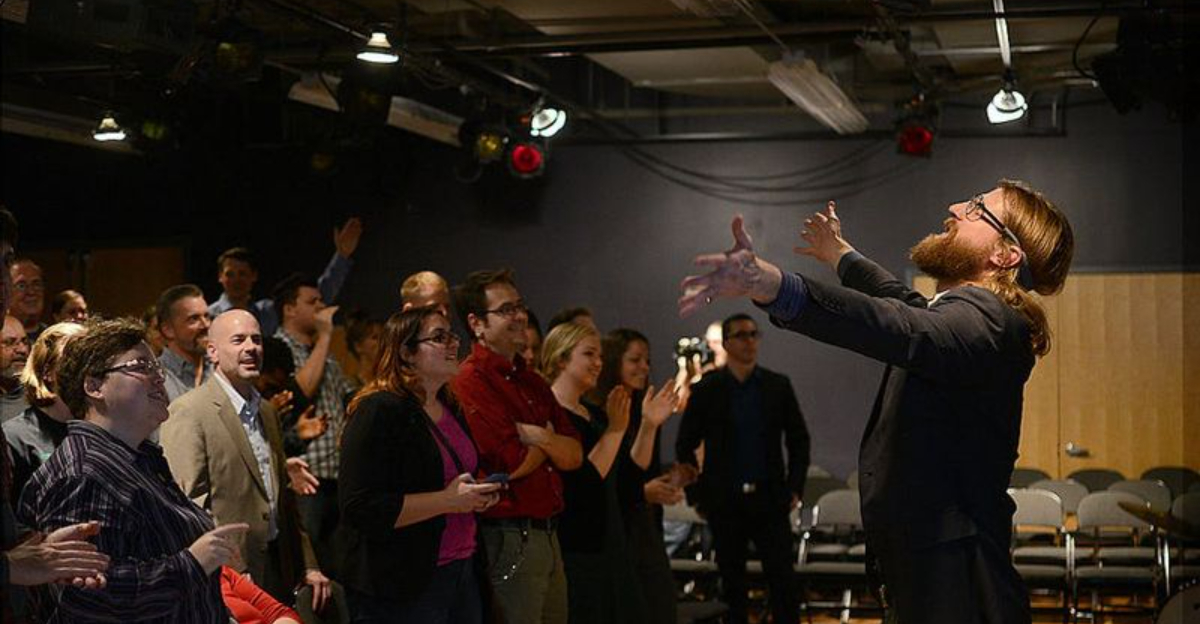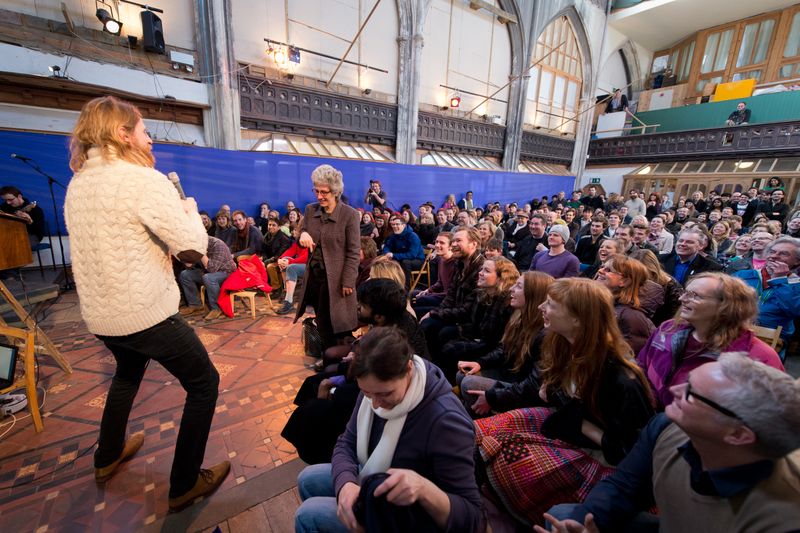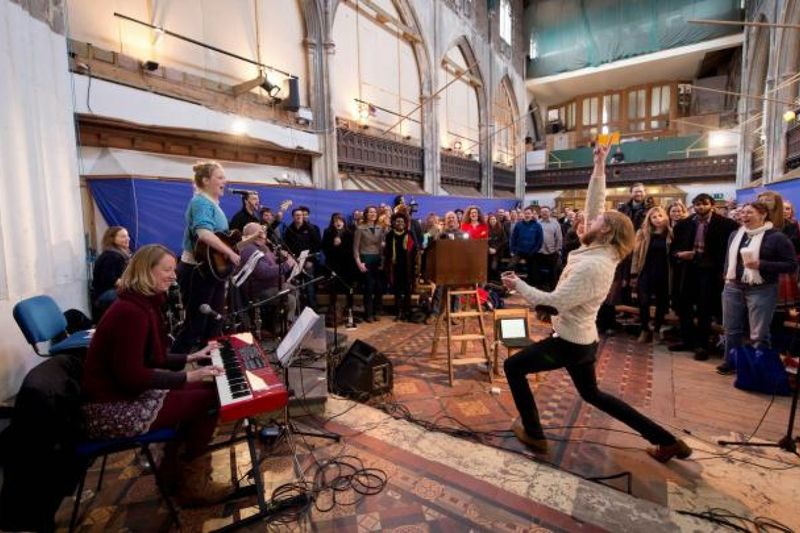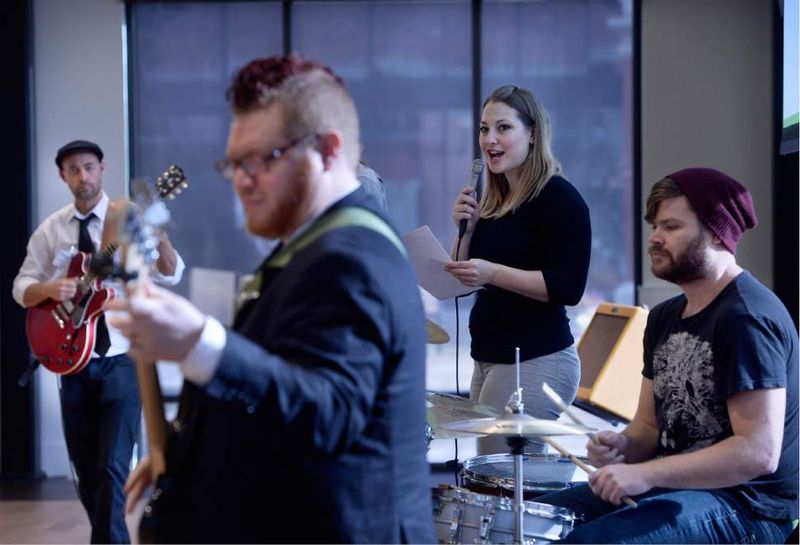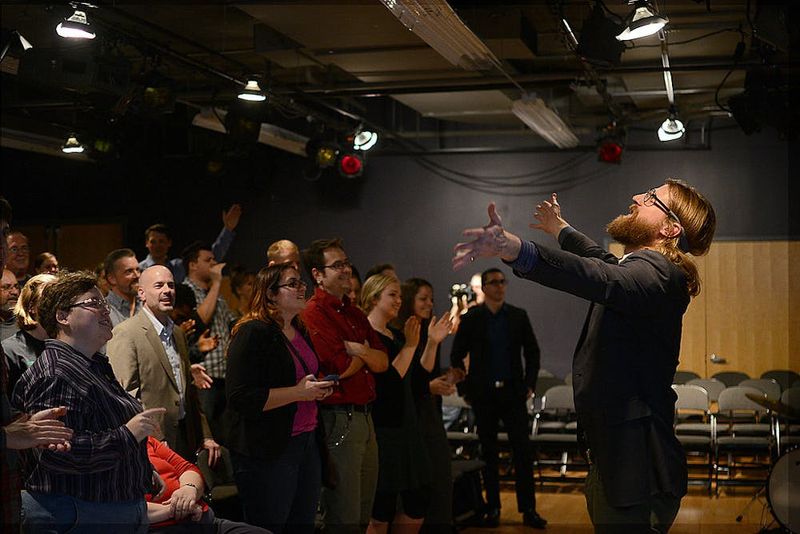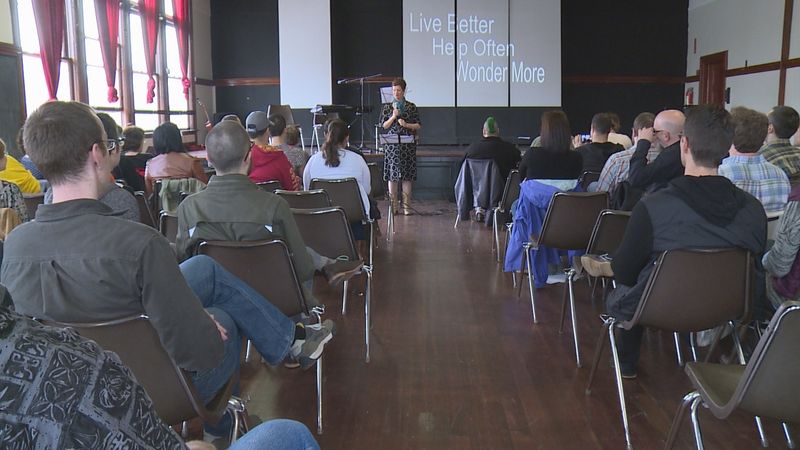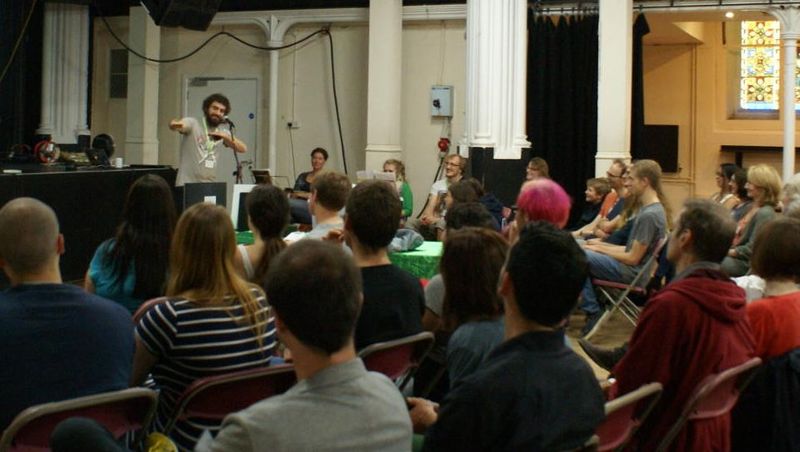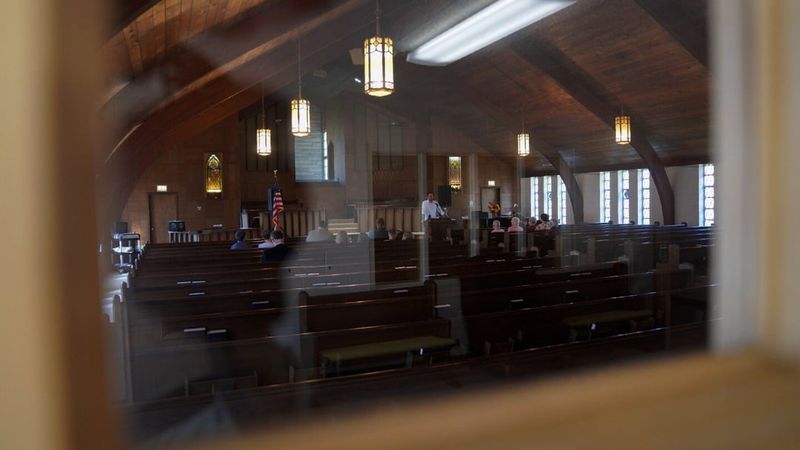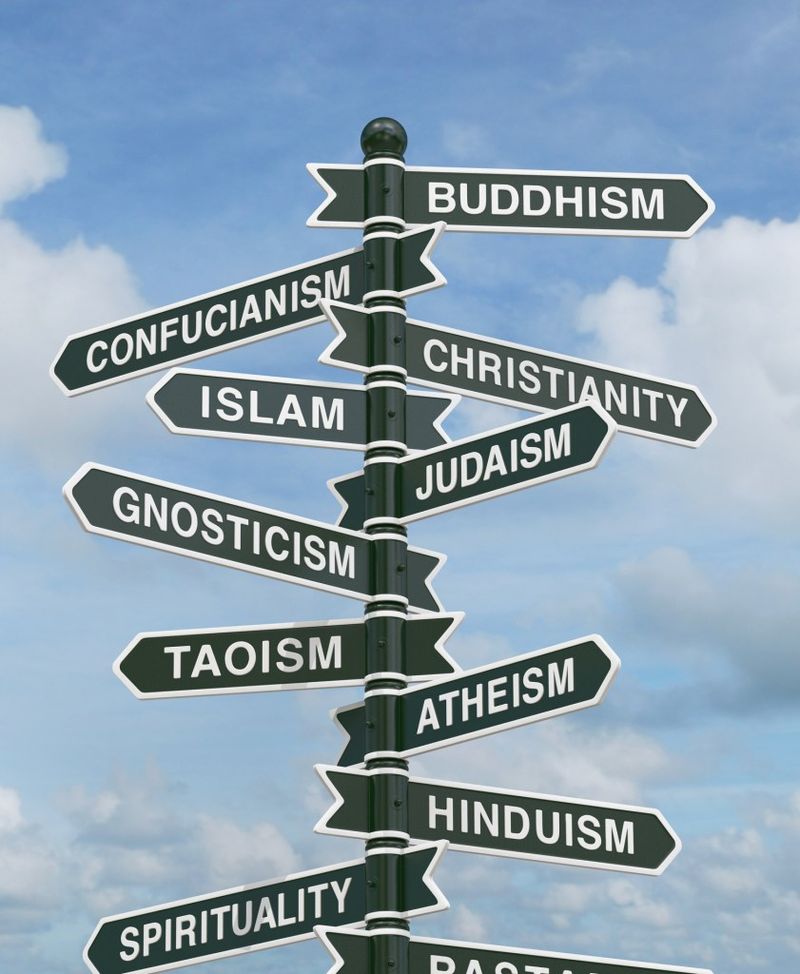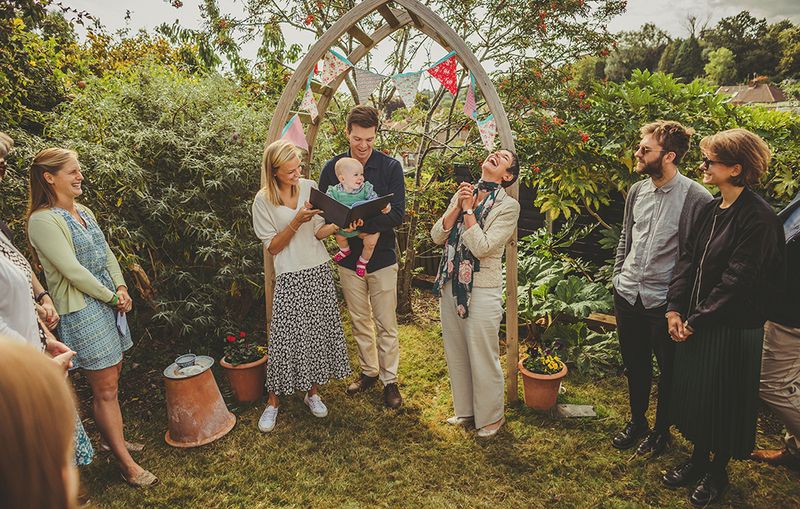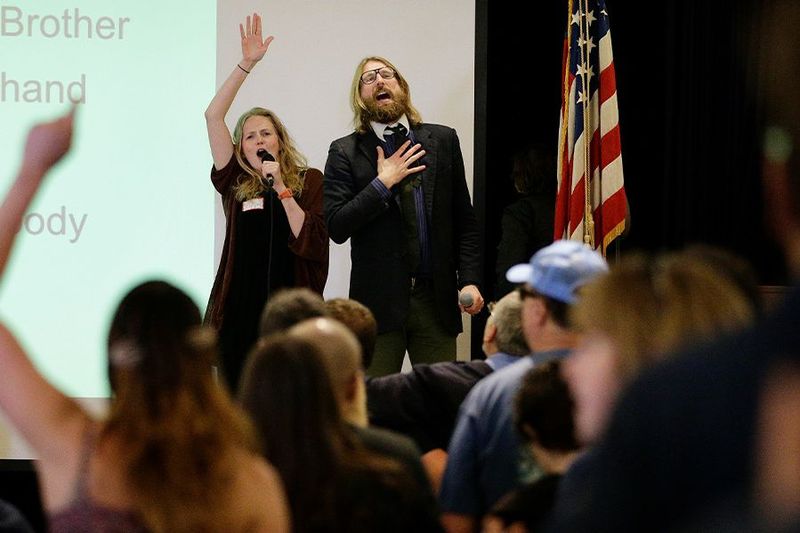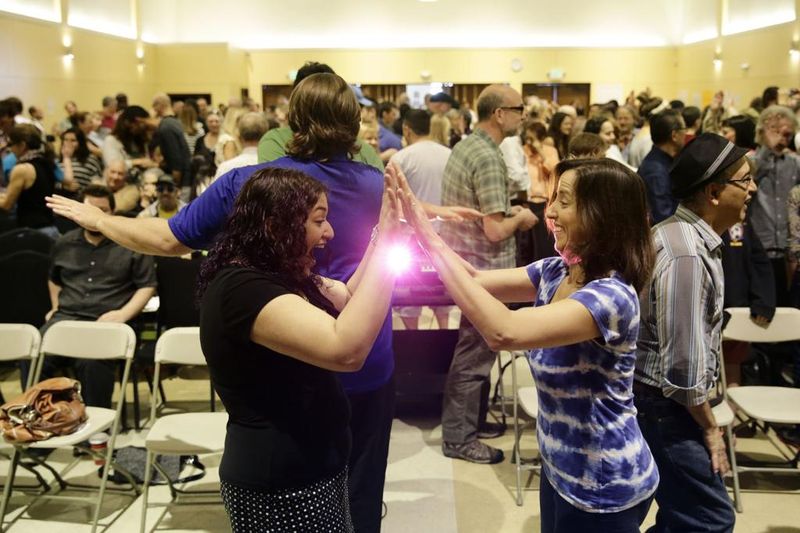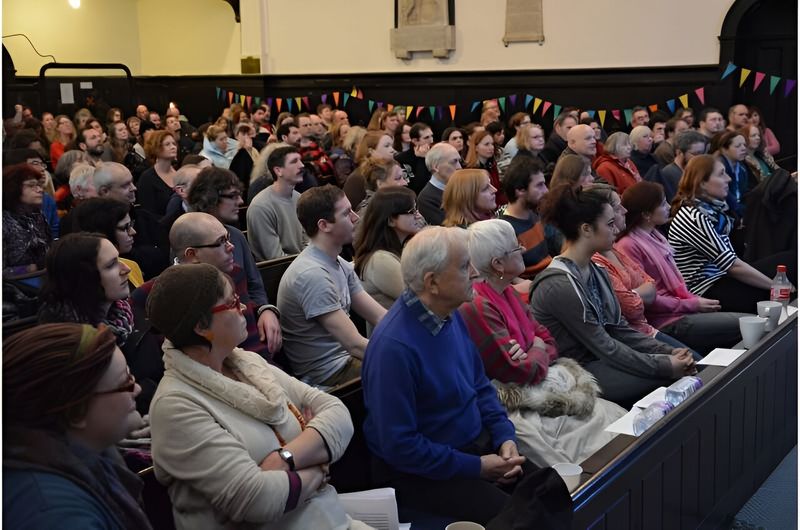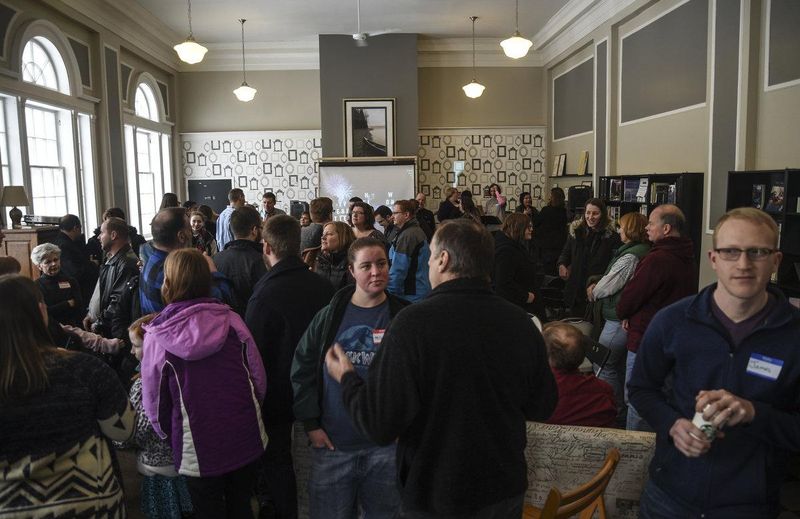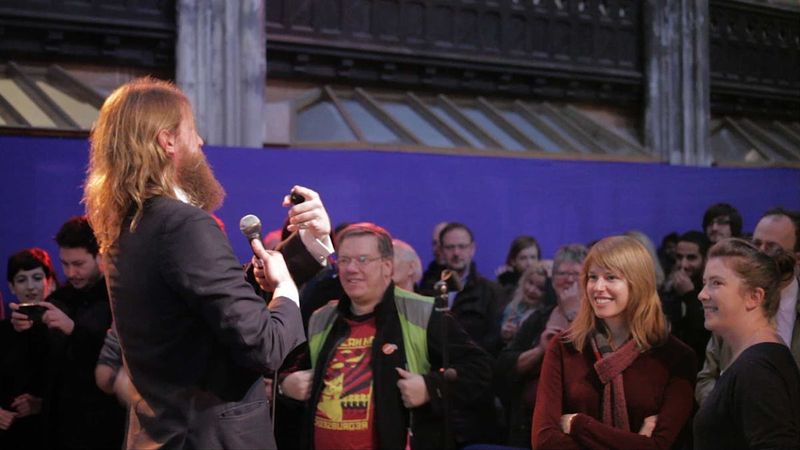Churches without God? It might sound strange, but atheist churches are real and growing fast around the world.
These communities bring people together for inspiration, connection, and meaning – just without any supernatural beliefs.
They’re challenging our ideas about what church really means and proving that humans crave community regardless of religious beliefs.
1. Atheist Churches Exist – And They’re Thriving
Welcome to Sunday Assembly, where the faithful are faithless! These godless gatherings have exploded in popularity since 2013, drawing crowds of non-believers seeking the community aspects of church without the theology.
Members gather weekly or monthly in rented halls, theaters, and yes, sometimes even in former church buildings. They share stories, support each other through life’s challenges, and build meaningful connections.
What makes these assemblies unique is their unapologetic embrace of church-like structures while completely removing religious doctrine. For many ex-religious folks, it fills a social void without compromising intellectual integrity.
2. It All Started in the UK
The atheist church movement traces back to a winter day in London when comedians Sanderson Jones and Pippa Evans launched the first Sunday Assembly. Their backgrounds in performance gave the gathering an entertaining edge that traditional churches often lack.
Frustrated by missing the community aspect of religion after leaving their faiths, they created something revolutionary. Their simple motto—”Live better, help often, wonder more”—resonated with thousands seeking meaning without mythology.
Within months, their small experiment went viral. News outlets worldwide covered this unusual phenomenon, sparking both criticism and curiosity about what a godless congregation might look like.
3. They Sing Pop Songs Instead of Hymns
Imagine a room full of people belting out “Don’t Stop Believin'” with the same enthusiasm churches reserve for “Amazing Grace.” Music remains central to atheist church gatherings, but with a secular playlist that would make any karaoke bar proud.
Queen’s “Don’t Stop Me Now” has become an unofficial anthem at many assemblies. Attendees report the same emotional lift from collective singing, regardless of whether the lyrics praise God or celebrate life’s journey.
Many assemblies feature live bands with community members sharing their musical talents. The songs chosen typically focus on themes of resilience, wonder, and human connection—universal values that transcend religious boundaries.
4. You Don’t Need to Believe in God—Just in People
Humanism forms the philosophical backbone of atheist churches. Rather than looking skyward for solutions, these communities turn to each other, celebrating human potential and kindness as worthy ends in themselves.
Members often describe experiencing profound moments of connection during assemblies. Many report that acknowledging our brief existence makes human relationships feel more precious, not less meaningful.
“We don’t believe in a higher power, but we do believe in higher purposes,” explained one regular attendee. This focus on human-centered values creates a space where ethical discussions flourish without appealing to divine authority or sacred texts.
5. There Are Now Assemblies in Over 40 Cities
From Sydney to San Diego, atheist churches have sprouted across six continents. Each location maintains the core principles while adapting to local cultures and needs.
New York’s assembly meets in a converted warehouse in Brooklyn, attracting young professionals seeking community in an increasingly isolated urban landscape. Meanwhile, Melbourne’s group gathers in a community center where they’ve built one of the movement’s largest regular attendances.
The rapid global expansion happened largely through social media and word-of-mouth. When curious non-believers discover there’s an alternative to Sunday morning solitude, many jump at the chance to connect with like-minded individuals without theological strings attached.
6. They Offer Moments of Reflection
Contrary to stereotypes about atheists being anti-spiritual, these gatherings incorporate meaningful moments of silence and contemplation. Many assemblies include a “moment of reflection” that functions similarly to prayer time in traditional services.
Speakers often share personal stories or scientific insights that inspire wonder. A talk about the vastness of space or the complexity of human consciousness can evoke the same awe as religious sermons—but grounded in observable reality.
Attendees report these reflective moments help them process grief, celebrate joy, and connect with something larger than themselves. The difference? That “something larger” is the human experience and natural world rather than supernatural realms.
7. Some Atheists Think It’s “Too Churchy”
Not all non-believers are fans of the Sunday Assembly model. A vocal contingent of atheists criticize these gatherings as mimicking the very institutions they intellectually rejected.
“I left religion to escape ritualized group activities,” explained one critic on an atheist forum. “Creating church-like structures seems like a step backward.” This tension reveals interesting divisions within atheist communities about how to build meaningful connections.
Others worry that the trappings of religious gatherings—like sermons and communal singing—might inadvertently reinforce harmful group dynamics they associate with traditional faith. This ongoing debate highlights the diversity of thought among non-believers about community building.
8. They’ve Sparked Heated Debates Online
Social media platforms regularly erupt with passionate discussions about atheist churches. Religious commentators sometimes mock what they see as ironic imitation, while defenders argue that community gathering is a human need, not a religious invention.
Reddit threads with thousands of comments reveal the complexity of feelings about these assemblies. “Isn’t this just religion without the god part?” asks one user, while another responds, “That’s like saying football is just war without the killing.”
These digital debates often center around definitions: What makes something a religion versus a community? The conversations reveal how deeply intertwined religious structures are with our understanding of social gathering and meaning-making.
9. They Celebrate Milestones Without Religion
Life’s big moments deserve recognition—even without divine blessing. Many atheist communities have developed beautiful secular ceremonies for births, weddings, and memorials that focus on human connections rather than supernatural sanction.
Baby namings replace christenings, celebrating new life with community promises to support both child and parents. Couples exchange vows focused on partnership and growth rather than religious obligations.
Perhaps most meaningfully, these communities provide secular funeral alternatives. When facing grief without promises of an afterlife, the emphasis shifts to celebrating the real impact of a life well-lived and finding comfort in shared memories rather than divine plans.
10. Science Is Often a Spiritual Substitute
Stardust becomes the new sacred in atheist churches. Many assemblies feature talks from scientists, philosophers, and psychologists who unpack the wonder of reality without supernatural explanations.
A cosmologist describing how atoms in our bodies were forged in ancient stars can trigger the same sense of awe as creation myths. Attendees report feeling connected to something greater—not a deity, but the vast web of existence revealed through scientific understanding.
This approach transforms scientific knowledge from dry facts into meaningful narratives about our place in the universe. Far from being cold or clinical, these science-based discussions often leave participants with a profound sense of connection and purpose grounded in natural reality.
11. They’re Totally Volunteer-Run
No collection plates or tithing funds these gatherings—just passionate volunteers giving their time. Most assemblies operate on shoestring budgets with community members handling everything from setup to speaking.
Maria, who coordinates a California assembly, spends about 10 hours weekly organizing events. “I was spending Sunday mornings alone before this. Now I’m building something meaningful with others,” she explains.
This volunteer model creates genuine ownership among participants. Without paid clergy or hierarchical leadership, these communities develop naturally based on members’ interests and needs. However, this grassroots approach also brings challenges—many assemblies struggle with volunteer burnout and organizational sustainability.
12. You Can Still Be Spiritual Without Being Religious
Many Sunday Assembly attendees describe themselves as “spiritual atheists”—a term that initially sounds contradictory. These individuals have rejected supernatural beliefs while maintaining a deep appreciation for transcendent human experiences.
Walking in nature, creating art, or connecting deeply with others can trigger states traditionally labeled “spiritual.” Rather than attributing these feelings to divine presence, secular spirituality recognizes them as meaningful human experiences worthy of cultivation.
“I get goosebumps watching a sunset just like religious folks do,” explained one regular attendee. “The difference is I see it as a natural response to beauty, not evidence of a creator.” This nuanced approach allows for wonder without requiring supernatural explanations.
13. They’re Inclusive to All Beliefs—Yes, Even Theists
Surprisingly, you’ll find religious folks at atheist church! Many Sunday Assemblies welcome believers who enjoy the community but may still attend traditional services elsewhere.
Mark, a practicing Catholic, attends both his parish mass and a local assembly. “The people are genuine and the conversations stimulating,” he shares. “My faith isn’t threatened by engaging with different perspectives.” This unexpected inclusivity creates unique spaces where diverse worldviews interact respectfully.
Some assemblies even invite religious speakers to share perspectives, fostering dialogue rather than division. This open approach stands in contrast to more militant atheist groups that actively oppose religion, demonstrating the diversity within non-religious communities.
14. They Encourage Acts of Service
Compassion needs no cosmic reward system. Atheist churches regularly organize community service projects, challenging the stereotype that moral behavior requires religious motivation.
From beach cleanups to food drives, these groups demonstrate ethical action based on human solidarity rather than divine command. “We help others because it makes their lives better and creates the world we want to live in—no afterlife points needed,” explains a Sunday Assembly organizer in Portland.
Research suggests these service activities fulfill dual purposes: benefiting communities while strengthening bonds between members. When volunteers work alongside each other planting trees or serving meals, they build relationships that keep them coming back to assemblies.
15. It’s A Global Movement That’s Still Growing
Against early predictions of quick failure, atheist churches have demonstrated remarkable staying power. What started as an experiment has evolved into a sustainable global movement with thousands of regular participants.
Growth patterns show interesting regional variations. European assemblies tend to attract those with religious backgrounds seeking familiar community structures, while American groups often draw people without religious upbringings looking for connection in increasingly isolated societies.
The COVID-19 pandemic forced many assemblies online, unexpectedly expanding their reach. Virtual gatherings connected isolated non-believers across geographic boundaries, suggesting these communities will continue evolving with hybrid models that combine in-person connection with digital accessibility.
